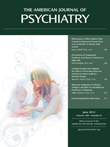Initial Validity and Reliability Data on the Columbia–Suicide Severity Rating Scale
To the Editor: We welcome the article by Posner et al. (1) in the December 2011 issue that provides initial psychometric data on the Columbia–Suicide Severity Rating Scale (C-SSRS). Analyses of data on the psychometric properties of the C-SSRS have lagged behind its widespread adoption in clinical trials and other settings. Although retrospective in nature and limited in generalizability, the results presented by Posner et al. support the validity of the C-SSRS and provide evidence for the internal consistency of the ideation intensity subscale. However, published data on interrater reliability of the severity of ideation and behavior subscales of the C-SSRS are limited, inconsistent, and based on different versions of the instrument (2, 3). Additional prospective studies of the interrater reliability of the current instrument are needed.
There is also an urgent need to examine the performance of the C-SSRS in special populations, such as children and patients with dementia. The C-SSRS is widely utilized in clinical trials to assess suicide risk in children as young as 6 years old. Despite significant developmental differences in language and understanding of concepts such as death, an unmodified version of the instrument is often used for children from 6 to 17 years old. Moreover, the pediatric experience of the individuals administering the instrument to young children varies widely, and related operational challenges, such as the inclusion of caregiver input, have not been fully addressed. A pediatric version of the C-SSRS is available but has found only limited use, and no separate validity and reliability data are available on the use of any version of the C-SSRS for children younger than 12.
Similarly, studies of patients with mild cognitive impairment or Alzheimer's disease frequently include assessment with the C-SSRS. Here again, there are no established objective guidelines on using the C-SSRS with patients at different stages of cognitive decline. As in the case of young children, no separate validity and reliability data are available on the use of the C-SSRS in cognitively impaired patients despite its widespread adoption.
The study by Posner et al. is an important first step toward establishing the validity and reliability of an assessment tool that has rapidly found widespread use in academic and industry-sponsored clinical trials spanning multiple indications in diverse patient populations. Extensive data sets based on the C-SSRS have accumulated and will be analyzed for signal detection of suicidal ideation and behavior. The results of these analyses will be valid and reliable only to the extent that the C-SSRS itself is demonstrated to be valid and reliable in the diverse patient populations to which its use has been extended.
1. : The Columbia–Suicide Severity Rating Scale: initial validity and internal consistency findings from three multisite studies with adolescents and adults. Am J Psychiatry 2011; 168:1266–1277Link, Google Scholar
2. : Predictors of spontaneous and systematically assessed suicidal adverse events in the Treatment of SSRI-Resistant Depression in Adolescents (TORDIA) study. Am J Psychiatry 2009; 166:418–426Link, Google Scholar
3. : Feasibility and validation of a computer-automated Columbia–Suicide Severity Rating Scale using interactive voice response technology. J Psychiatric Research 2010; 44:1224–1228Crossref, Medline, Google Scholar



